#eidolon
Text
In middle school, I read a short story for English class called Flowers for Algernon. Maybe you’ve read it, too. In the story, a disabled man named Charlie is given a medicine that cures his disability. Over the course of the story, he comes to realize that his “cure” is temporary and that he will “regress” into being disabled again. The story makes it clear that this is a tragedy. As a disabled teenager when I first read it, the story affected me deeply.
I’d like to talk about David and Noelle.
Content warnings for discussion of suicide, self-harm, ableism and eating disorders below the cut. Spoilers for Worm through arc 27.
When I was first reading arc 18, one of the things that stuck out to me is how much time the story spends on Eidolon. For me, it was the first time I paid much attention to him - prior to that, Eidolon was just an extremely powerful background character to me. But in arc 18, we learn that (1) Eidolon is losing his powers and (2) he believes that fighting Echidna will allow him to tap into some sort of reservoir to bring them back.
We find this out, of course, through Tattletale exposing him, which is always an extremely embarrassing event for Tattletale’s target. It makes it extremely clear that what Eidolon is doing is pathetic. He is going to kill a teenage girl so he can feel something.
Which would be messed up enough, right? We don’t need to make this even worse, right? Wrong. Because Wildblow has spent the last several thousand words building up the Case 53s as X-Men style metaphors for oppressed groups, and one of the forms of oppression that Wildblow generally writes well is ableism. I think you can consider most, if not all of the Case 53s as disabled in some way. I think the link is extremely clear with Noelle.
Noelle doesn’t get her powers from traditional Cauldron human experimentation - at least, not directly. Instead, she and Krouse are facing what is, to them, a no-win scenario. They’re quarantined with limited access to medical care. Breaching this quarantine would permanently render them criminals. If Noelle survives her surgery, which is a pretty big if, she’ll become disabled, in a way that both Krouse and Noelle agree is ugly and undesirable. She won’t be able to do “boyfriend-girlfriend stuff” because she won’t be “any good to look at, after.”
Krouse and Noelle are terrified of death, yes, but they’re also terrified of disability. They are desperate for control over Noelle’s body, control that, as of that moment, only the state has. (Remember the quarantine?) Krouse pressures Noelle into drinking the vial. Noelle is cured.
Noelle’s cure does not last. In attempting to assert control, her body becomes uncontrollable. Her body is her trauma and her eating disorder made literal. She still needs care.
Worm would be bad if this is why her life sucks. But Worm does something better, instead. Noelle goes through hell, not just due to the sheer difficulty of having her power, but because of the way her teammates and Coil treat her. They talk about Noelle like she’s already dead. They’re ashamed of bringing her the food she needs. When Krouse “includes” Noelle in a discussion in arc 12, it’s mostly perfunctory. They do not believe Noelle is human any longer. They lock her away.
Noelle doesn’t want to be put in a cage. Noelle doesn’t want to be dehumanized. In interlude 18, when we get insight into Noelle’s thoughts, we learn that what Noelle is angry about is the fact that Krouse locked her in a concrete bunker and placated her. When she tells people not to look at her, there’s a coda to that sentence that she doesn’t get to verbalize: don’t look at me like that.
This is the person who Eidolon is going to kill.
Via the Simurgh, this is a person Eidolon has unknowingly created.
A few thousand words of Worm go by. It’s Gold Morning. Eidolon is fighting Scion. Now, at the end of the book, we finally get substantial insight into David, the man behind the mask.
David takes a Cauldron vial to cure his disability. David sees this as the only way out, after an unsuccessful application to join the military, and then, an unsuccessful suicide attempt. David is bearing an immense amount of shame and internalized ableism. David is worried that father’s friends are watching him. (Don’t look at me.) David cleaves the world into two kinds of people: those who can have jobs, who are liked and respected because they are useful; and people like him, who are useless.
It’s a terrible way to think. Without that worldview, how could a person not take the vial? David wants to be used, because David wants to be useful. He never gets the independence he craves – not when he’s in that level of debt to Cauldron – but he gets to be useful, and that’s one of the best things you can be.
Like Noelle’s, like Charlie’s in Flowers, David’s cure doesn’t work. His abilities are wearing off. He is essentially told, when Doctor Mother administers his booster shots, that his medicine is too expensive.
Cauldron creates Noelle. David, as Cauldron’s soldier, has a role to play in her creation. David knows exactly what he is doing to Noelle. It happened to him. Worm fandom talks a lot about David being a father. He’s a father in more ways than one. (David’s father is always watching him.) (Don’t look at me.)
Cauldron never cures David’s ableism. In his world, you can be useful, or you can die. David asks Noelle if she wants to win. Noelle tells him no. You can have a job, or you can kill yourself. When David tries to kill Noelle to help himself, isn’t that a mercy?
Of course it isn’t. It goes without saying that all of this is extremely fucked up. When it comes to disability, “cure” is a complicated concept. I’m not going to get into all the ways it can be treated; this post is already a thousand words long. But I do think that Worm, through Noelle and David and the concept of the Cauldron vial, provides an extremely vivid picture of the problems with cure.
Under ableist logic, when you have a disability, a cure is something you’re expected to want. Without it, the story goes, you can’t be useful. You can’t do boyfriend-girlfriend stuff. The expectation is social, like the act of staring. Your desire for it should drive how you organize your life – it is control, like a quarantine. David is crushed by that expectation. He throws his lot in with Cauldron, the cure-makers. The expectation is passed along to Noelle, and even though David can recognize that inheritance, he cannot imagine any other way to respond to it other than attempted murder.
At the beginning of this post, I mentioned that Flowers for Algernon is a tragedy. The reason that story has stuck with me so long is that I keep going back and forth as to why. Is it a tragedy because Charlie goes back to being disabled? There’s a good chance that’s what the author intended. I don’t know. It would be a pretty shitty story if that were the case. Is it a tragedy because people only treat Charlie well when he’s “cured,” and when that stops, he’ll go back to abuse? Seems plausible. I don’t think there’s one right answer. Regardless, when you’re disabled, there’s an immense pressure to seek out a cure, and a cognizable loss when it is withheld. The fact that Worm captures that social pressure and social loss so well is extremely compelling for me, and I’m going to be thinking about these characters for a long time.
#worm#parahumans#wormblr#eidolon#noelle meinhardt#any errors or omissions in this post are due to me reading interlude 27 like 3 hours ago#shoutout to tumblr user artbyblastweave for writing excellent eidolon meta that inspired this one#i would also give a shoutout to my friend who convinced me to read worm but i already shout at her enough. enjoy. thanks for the worms
288 notes
·
View notes
Text
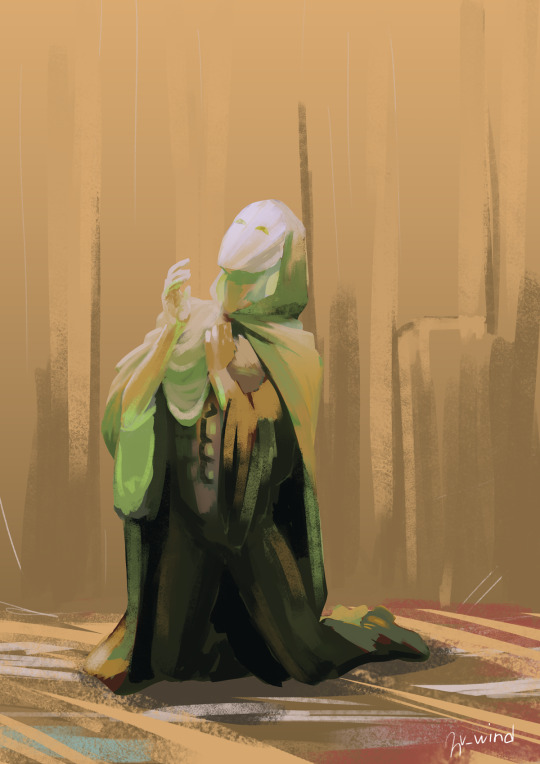
2,5 hours scetch
practice of line art and lasso


317 notes
·
View notes
Note
I've never made any connections between Worm and the Captain America mythos before. Spill some ink?
Okay, so from a purely aesthetic perspective, the gimme is Miss Militia. She's the most obvious "Captain Patriotic" in the roster, she has the power of GUN, she's the only one who actively buys into the mythology of America specifically. She's a Kurdish woman occupying an aesthetic niche generally held by a rugged squinty white guy. She's an output of the melting pot narrative. She's sort of a rendering of what a grounded superhero who somehow became very aesthetically into America might look like. Not in the craven marketing-driven way of Homelander or Comedian, not in the jingoistic maniac way of USAgent or Peacemaker. She buys it in the broadly left-liberal (USamerican connotation of that term) safe, friendly, reclamative way. Why, what a great rehabilitation of the archetype!
She's also deeply, deeply afraid of rocking the boat. She's got a deepseated childhood trauma related to the bad things that happen when she puts herself in a leadership role. She goes along to get along. When she's proactive, it's usually to point a gun at Tattletale to stop her from upsetting the status quo. She sits through a lot of situations where Steve Rogers, as commonly modeled, would probably plant himself like a tree by the river of truth and go, "Hey, this is fucked up." She more or less capitulates to Undersider domination of the city, in a way that predisposes us to think of her as a voice of reason after all these total nuts that Skitter's been up against- but would Taylor "to relinquish control is a form of ego death" Hebert really be willing to leave someone in charge of the local Protectorate branch who she thought couldn't be corralled? She looks like a beacon, but doesn't- indeed, probably can't- ever truly behave like one. I mean, you can debate the on-the-spot morality of any given one of her judgement calls, that's actually one of the less exhausting Worm Morality Debates to have- but in aggregate, a person in American flag garb who actually meaningfully criticizes the paramilitary organization they're part of is not gonna survive long in that role!
So again, she's the gimme from an aesthetic standpoint. But what I don't really see a lot of discussion of is how Cauldron plays into the riff.
Captain America is institutional, but in a comically morally uncomplicated way. The serum was originally mana from heaven, granted to a living saint, conveniently divorced from any nitty-gritty sausage-making process and even-more conveniently divorced from the horrible consequences of giving the, uh, the U.S government a replicable super soldier process. And in fairness to Captain America, this is 100 percent something the overall mythos eventually patched to my satisfaction; the sausage-making process eventually revealed as prototypical government fuckery driven by human experimentation on black servicemen, the overall Marvel Setting littered with failed attempts by the U.S. Government to recreate that golden goose so they can have their fun new jackboots. (In Ultimate Marvel, this is how almost all contemporary superhumans were created, and this is a state of affairs with a body count in the millions or billions.)
Cauldron draws you in with the same noble rhetoric about greater goods, the same one-off proprietary irreplicable formula- but you don't get the luxury afterwards of representing nothing but the dream. You aren't partnering up with a plucky crank scientist with a heart of gold. You're selling your soul to an organization with an agenda. The narrative makes no bones about the fact that everything you do is fundamentally tainted by the fact you opted into an end product created through torture, kidnapping and human experimentation. You don't get to pull a Kamen Rider by going rogue or opting out or making good use of the fruit of the poisoned tree; you are owned, and everything you do has this Damocles sword hanging over your head- when are the people who bankrolled this going to come to collect?
So that's the question of "who would willingly dress like that" covered, and the question of who creates a serum like that. What about the question of who takes a serum like that? I'd argue that Eidolon is the examination of that. Pre-Cauldron David reads to me like pre-serum Steve Rogers viewed through a significantly bleaker lens. They're both sickly kids desperate to serve, rocketed to the pinnacle of human capability by an experimental procedure. But for Steve Rogers, the crisis was that he had a specific vision of the world and was frustrated by his inability to carry it out. Before the serum he picked fights over what was right and wrong and got his ass handed to him; afterwards he picked those same fights and just started winning instead. The serum neatly solved a problem he had, and to the extent that his mindset is influenced by his pre-serum experiences, it's generally constructive; a desire to protect the weak, help the helpless, an appreciation for people who stand up for what's right even when they're clearly gonna get pancaked for their trouble. So ultimately there's no dark side, downside, or underlying neurosis ascribed to his initial impulse to take that serum.
But with David, it's not a tragic case of the spirit being willing but the flesh being weak. He isn't a preternaturally-noble soul, out to represent the best elements of the American ideal- he kind of represents the inverse, a guy who's been failed at every level while utterly convinced that he's the problem. He's actively suicidal because he's a wheelchair-bound epileptic in an economically-depressed socially-backwards rural town in the 1980s, and he's spent his 18 years of life internalizing the idea that he's worse than useless unless he can somehow find a way provide value to something larger than himself. Doctor Mother finds him in the aftermath of a suicide attempt spurred by his rejection from the army- and he didn't even want to join the army specifically, necessarily, he just needed his situation to be literally anything else, and he took what he thought he could get. And then he finds himself in a position to become a superhero, so he does that, molds himself into that, subordinates himself to that, builds his entire sense of self and values around the value he can provide in that role. No grand design or sacred principles carried over through the metamorphosis. Just relief at finally, finally having something that looks like an answer to the question of what he's supposed to do.
And you know, you know that if Steve Rogers was facing down the barrel of being depowered, he'd smile and nod, he'd Cincinnatus that shit. It's happened before. But for David, the emotional trauma and self-worth issues that caused him to roll the dice on a Steve-Rogers treatment never really went away. When would it? He's been Providing Value as a ten-ton Hammer Against Evil for thirty years. No family, no social life. Certainly, no incentive on his handler's part to lance his Atlas complex. So he barrels towards atrocity in the name of remaining useful. Admittedly, this is where the comparison breaks down in a significant way; Captain America is much more of a symbol than he is an irreplicable powerhouse, so it's not catastrophic if he's taken off the board. Eidolon is so unbelievably powerful that his myopia and self-centeredness actually do align with a real problem everyone else is gonna have if he loses his powers. But in terms of the starting points- I think that Steve Rogers embodies the myth about why you'd want to join the army that badly. Eidolon is, I think, much more closely modelling why you'd actually want to join the army that badly.
#apologies for the delay in responding#worm#wildbow#parahumans#worm meta#eidolon#thoughts#meta#miss militia
542 notes
·
View notes
Photo
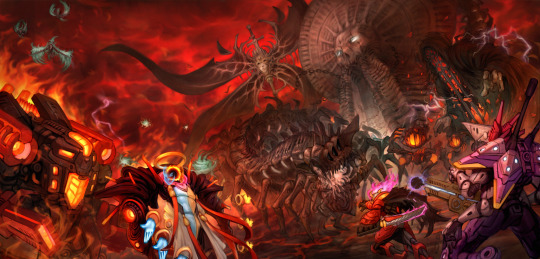
Lancer Eidolon fight for a client graciously allowing me to draw my two main interests, big robots and fucked up meat demons from another dimension
#lancer#lancer ttrpg#lancer rpg#lancerrpg#mech#mecha#mechs#eidolon#ttrpg campaign#ttrpg community#ttrpg stuff#ttrpg#ttrpg art#tabletop#tabletop roleplaying#robot#robots#giant robot#monster#creature#body horror#Illustration#Digital Illustration#illustrator#digital art#digital painting#artists on tumblr#art#artist#sci fi
456 notes
·
View notes
Text
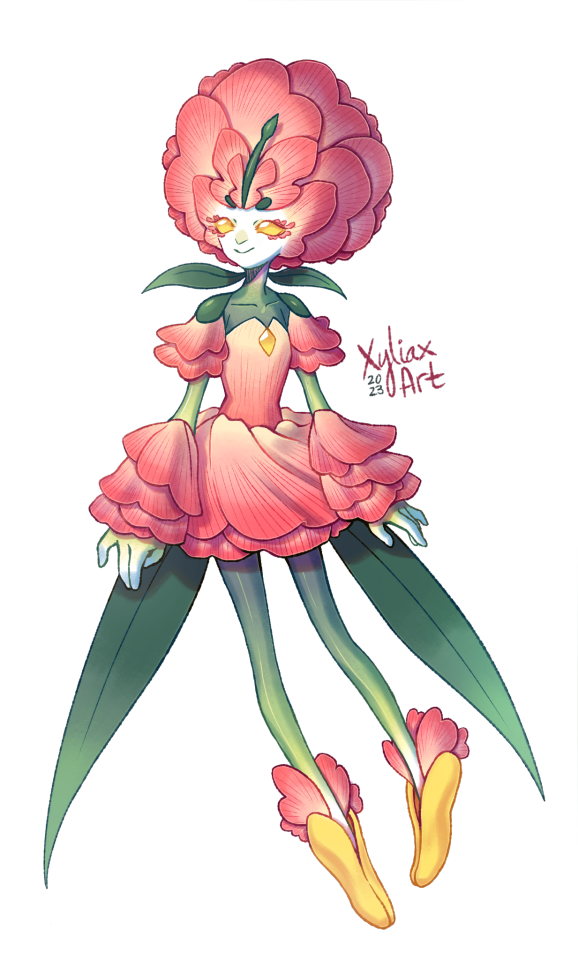
I guess I should actually post this since I spent so much time drawing it. It's Dicentra again
#art#pf2e#plant girl#eidolon#pathfinder character#digital art#oc#Dicentra#monster girl#xyliaxart#xyliaxoc#original character#pathfinder#dnd#plant creature#flower girl#fairy#flower fairy#she's not a fairy but she has that vibe so i figure the tag works#my art
372 notes
·
View notes
Text
Reminder that Eidolon is a Texan cape, and thus all his dialogue is in a Texan accent.
135 notes
·
View notes
Note
How would you rank the members of Cauldron in terms of hypothetical parenting skills?
there is a fic about this very thing if you would like to see
I considered just copy pasting "distant and emotionally neglectful" for all of them but,
Doctor Mother: She raised Fortuna all right didn't she. Didn't she
Alexandria: Places high expectations on the kid and they definitely feel it. Also overengineers many trials by fire to fuel the kid's personal growth, but other people (e.g. faculty, bosses, daycare employees) are not allowed to administer those trials unless given explicit instructions
Eidolon: Somewhat protective and not bad in the beginning, gets increasingly insecure about his parenting skills over time and buries himself in hero work. Child most likely drinks a vial to get attention and becomes his arch nemesis
Contessa: She tries her best -> child eats ice-cream for dinner -> police can't find enough evidence to make the charges stick -> the case goes cold -> she tries her best ->
Number Man: Reads parenting books in secret and attempts to follow them to the letter. Gets flummoxed and disgruntled when the child doesn't behave in exactly the way they're supposed to. Starts reading classified cia manuals on enhanced interrogation techniques instead
Custodian: Enjoy your surveillance state kiddo
Slug: Most likely to raise a child who isn't damaged by their childhood
William Manton: We saw how this turned out
I just realised I didn't even rank them. From best parent to worst
Slug
Custodian
Number Man
William Manton
Eidolon
Doctor Mother
Contessa
Alexandria
#wormblr#ask me anything#cauldron#doctor mother#contessa#number man#eidolon#alexandria#custodian#slug#william manton
90 notes
·
View notes
Text

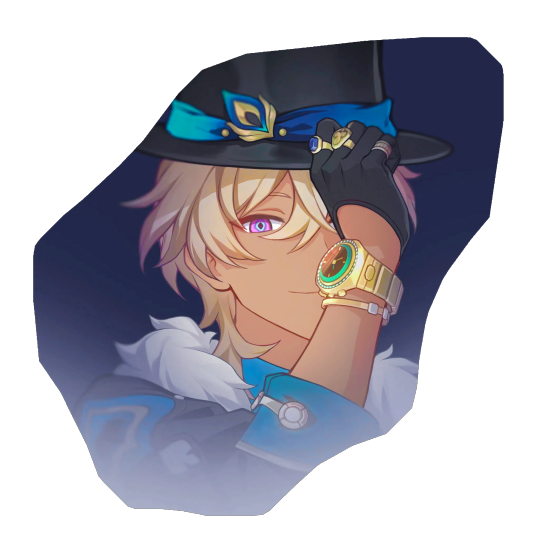

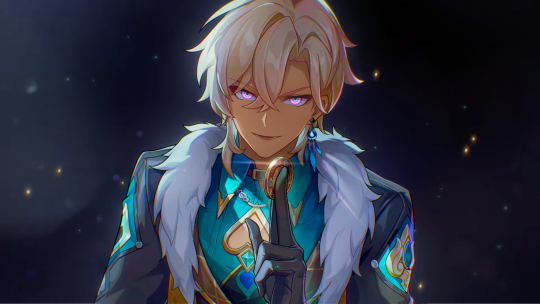
some aventurine edits i made for myself but sharing them in case anyone else wants to use them <3 u can do whatever u want w these and credit isnt needed just appreciated!!
#aventurine#honkai: star rail#hsr#hsr aventurine#edits#icons#emoji#chibi#eidolon#trailer#Inherently Unjust Destiny
71 notes
·
View notes
Text

@ask-the-crimson-king - you brought this upon yourself.

youtube
126 notes
·
View notes
Text
Have you played EIDOLON: Become Your Best Self
By Luke Varner & Molly Rhinebeck

Persona / Jojo’s inspired magic soul battles
An RPG about manifesting your soul as an ideal self, and forging it through the power of friendship.
59 notes
·
View notes
Text
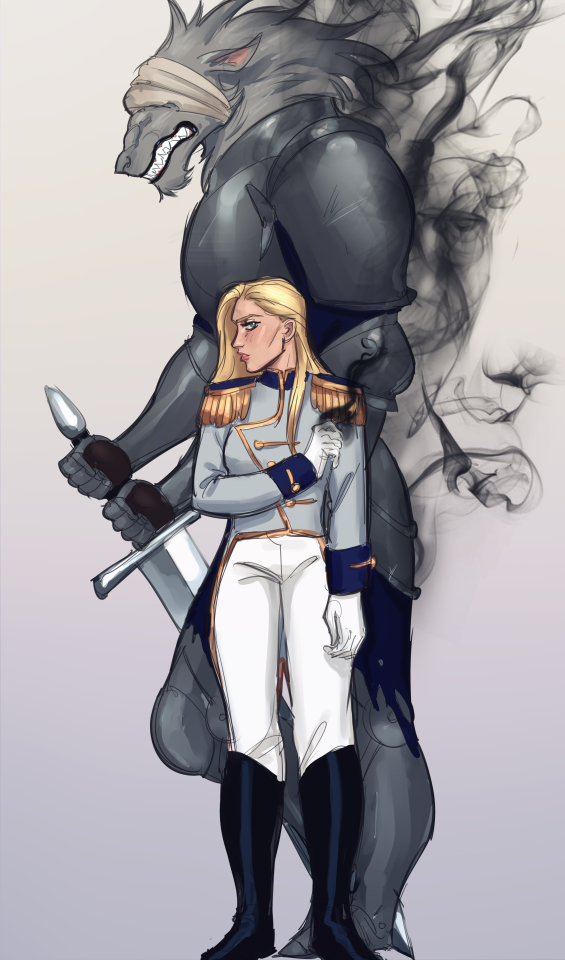
Meet Ezra, crown princess and summoner! Her eidolon, Mafirith, is passed down through the family to each ruling heir, and Ezra must learn to coexist with him and wield his power :D
203 notes
·
View notes
Note
78 far from home - eidolon

family reunion
74 notes
·
View notes
Text
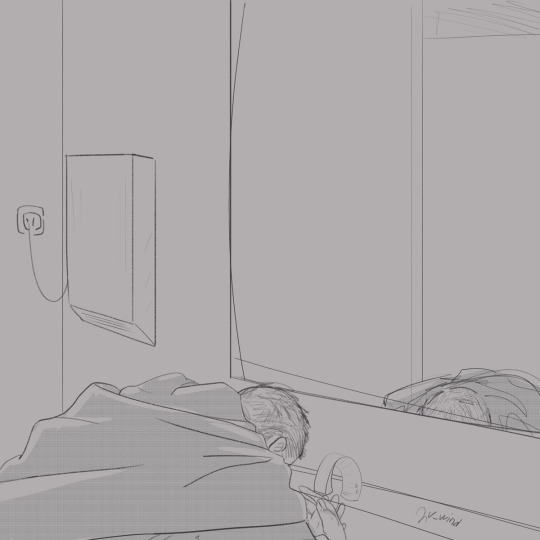


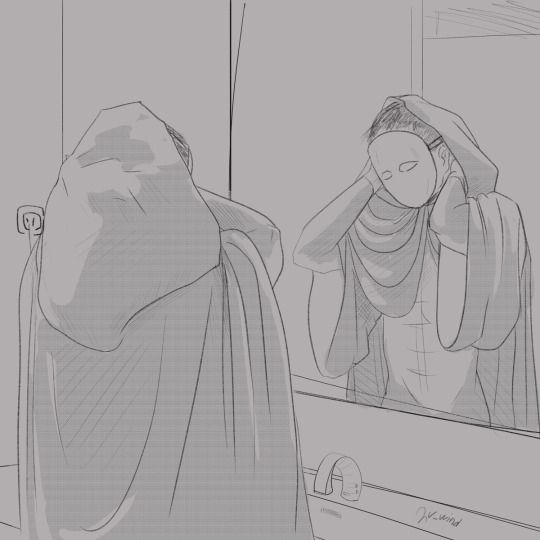
This sketch looks sooo wrong

#parahumans#worm fanart#wildbow#worm web serial#eidolon#scetch#fucking prosopagnosia I can't draw the same face#Comic
166 notes
·
View notes
Note
I've seen it said that Worm has two distinct takes on the Evil Superman archetype. One is, obviously, Scion. The other that I've heard is that the Triumvirate each represent aspects of Superman. Alexandria is the flying brick archetype, Legend is the charismatic aspect, and Eidolon is the "World's Strongest Hero" part. Any thoughts?
Yeah, essentially right, with a few extra elements- Legend is also the one who gets to have a functional civilian life, Alexandria gets the double identity element, and Eidolon gets not just the status of the world's strongest hero, but also the editorial baggage of the world's strongest hero running out of things to fight.
Legend's also the one who gets to act as a critique of Superman’s squeaky-clean boyscout morality; he gets to have comparatively clean hands because he’s out of the loop on all the morally fraught decisions, and he’s out of the loop on the morally fraught decisions because he didn’t really look all too hard at what was obviously a shady setup. And this feels reminiscent of the persistent meta-level criticism of superheroes in general and Superman in particular (which for the record I only loosely endorse at this point, but which was absolutely true at one point) that their classic "good guy" behavior is only really possible if they're forcibly kept out of contact, on an editorial level, with all the real-world systemic problems that actually cause crime and war and so on, kept out of contact with anything morally thorny, kept away from the question of why something is a crime when a burglar does it but not when a Senator does it. Certain evils you're allowed to target, certain assumptions about the system you're part of that have to go unchallenged- assumptions that raise serious questions about the heroes' ethics, savviness, and personal politics unless you're portraying a world in which all of that under-the-hood societal stuff magically isn't there to be noticed at all. Which Worm, you know, isn't.
197 notes
·
View notes
Text

playful rayhounds that I designed for my first dnd campaign! 🐟🐕🏖️
149 notes
·
View notes
Note
Manton vs David vs Danny
Who wins the sopping wet pathetic old guy competition?
Manton can't be sopping wet; he's on that Siberian grindset and isn't nearly as pathetic as the other two. Between Danny and David the answer, I feel, is obviously David. Danny as a guy kinda sucks. He's not a great dad, he's listless and lost, he doesn't know what he's doing, and lets himself basically fall away from everything. David is even worse.
David is so much of a pathetic loser that he created the Endbringers out of his sheer, pitiful need to do better. David has all the powers he could ask for, respected and loved by billions, has the world on his shoulders, a literal secret organization at his backing, and is still the kind of failure who would sit around in his underwear mindlessly eating cereal out of the box staring at old reruns staring on a tv balanced on a cardboard box until someone came to grab him for a new villain. How is anyone supposed to compete with that?
56 notes
·
View notes